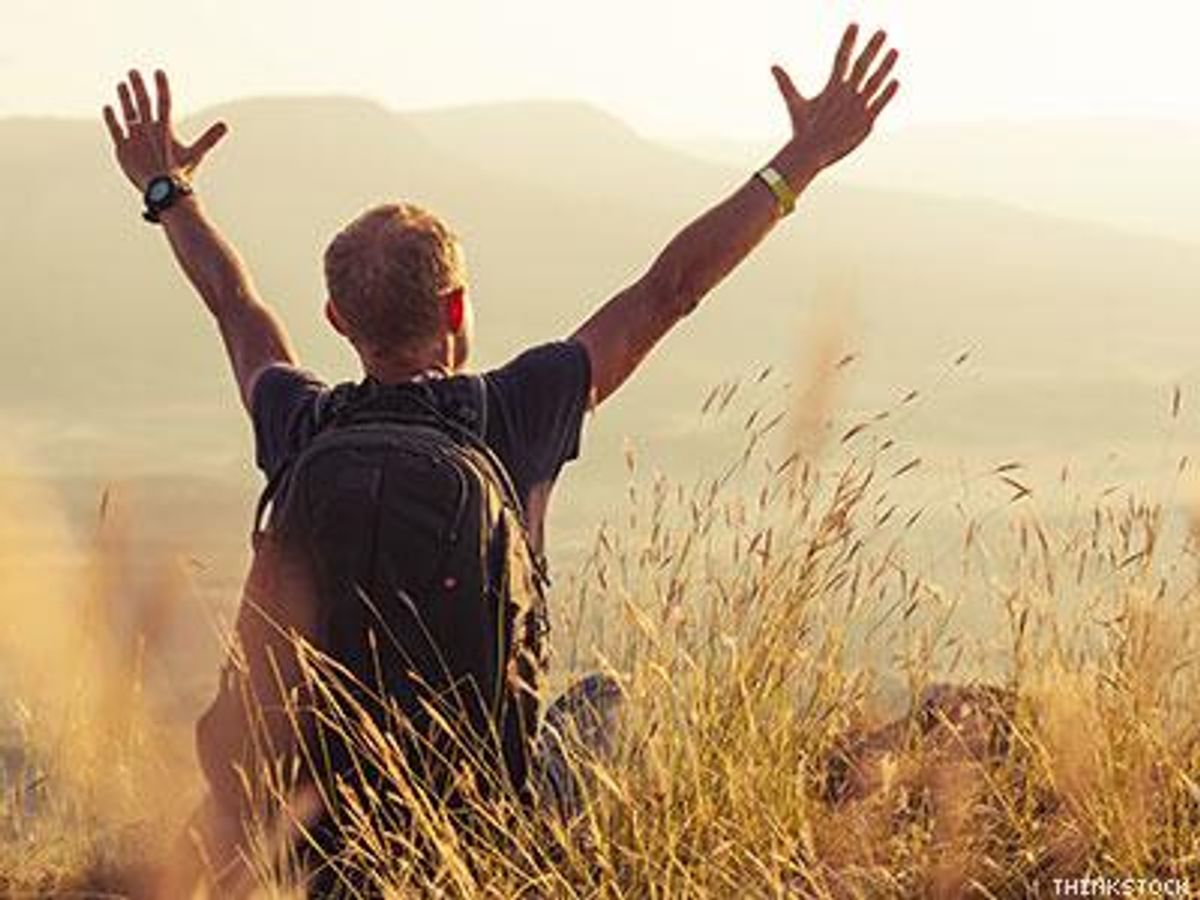
Does being gay -- or part of any minority -- make you more empathetic to environmental concerns? This writer thinks so.
April 22 2015 4:00 AM EST
November 17 2015 5:28 AM EST
By continuing to use our site, you agree to our Private Policy and Terms of Use.

I am a Latino man, a gay man, and a tireless advocate for the environment. All these aspects of my identity are inseparable and equally important. I was born in the Bay Area, but I have deep roots in Mexico and New Mexico, where I live now and where my grandmother traces her ancestry. My roots provided me the three most influential inner voices that guide me in my life and my work -- the courage to be myself and love who I love without apologies; a commitment to serve in the interest of those whose voices often go unheard, such as Latinos, immigrants, and low-income communities of color; and a fierce, unwavering love for the earth. Not just the earth I walk on in New Mexico, but the planet we all share.
I began engaging with environmental justice not necessarily to save the planet but to connect with my history and my culture, specifically the deeply rooted indigenous and mestizo traditions of living off the land in Mexico and the Southwest. The older generations in my family talk about respecting the land and never taking more from it than you can give back. I realized it was important for me to continue this legacy and also to be aware of issues that damage the earth and us as people connected to it.
I also learned from my work as an out gay man and advocate for our larger lesbian, gay, bisexual, transgender, and queer movement how important it is to change the conversations and attitudes in this country in order to achieve the changes we want. We need policy makers and our neighbors to truly understand, advocate for, and not block the changes that will have real consequences in our everyday lives. Meaningful transformation is necessary so that we all have access to the basics: safety, housing, health, education, and employment.
Today is Earth Day. If we want to achieve progress in climate justice, we also have to change the conversations people are having about our environment. Having decision makers and politicians accept that climate change is a reality is the bare minimum. In order to lower the CO2 levels in the air and make the other changes we need so that every community has equal access to a healthy environment, we need many more conversations about the very real threat of climate change. Why? Because the air we breathe, the water we drink, and the lands we live on are constantly under attack by a variety of industries, such as fossil fuels industries that not only damage our beautiful skies but harm the people who live near where this energy is produced.
Currently, I am the program director for Juntos, a program of Conservation Voters New Mexico Education Fund in partnership with the League of Conservation Voters Education Fund. We and our two sister programs, Protegete in Colorado and Chispa in Arizona, care deeply about the work that we do. We are committed to incorporating the voices of Latinos into the conservation policy decisions that protect our states and our rapidly changing, diverse country. Looking at diversity holistically, we see a broad range of support for climate action within many groups, especially Latinos and queer people. Both these populations understand that climate change is an important issue. Fifty-five percent of LGBT people care greatly about the environment, compared to just one-third of heterosexuals. A poll of Latinos found that 54 percent of Latinos see climate change as something that is extremely or very important to them personally, much higher than the 37 percent of whites who answered in the same way.
Yet here in New Mexico our largest utility company, PNM, is not investing in renewable energy fast enough to respond to the pending climate concerns that Latinos and queer communities care so deeply about. PNM only produces 11 percent of its energy from renewable sources, yet we have the second highest potential for solar energy.
Looking for models for myself, I found the words of Gerod Rody, founder of Out for Sustainability, one of the few organizations working nationally within queer communities to build a green future. They have initiatives such as Greener Pride a vision to support Pride celebrations around the world to achieve zero waste, carbon neutral parades and festivals. As Roday explained, "When I came out ... it calls you to a higher standard and lets you see the world in a completely different way." I agree that once you decide to come out you never go back. You commit to live as yourself, as a full human being unwilling to compromise your identity to fit in or to please others. It is a courageous act, one that I never regret.
For me, being a climate justice advocate is no different. Committing to act in ways that protect our beautiful madre tierra is not a passive act, it is one that I think about every day in my thoughts, and more importantly, in my actions. So on Earth Day, we need to honor this commitment as well as the diversity of people fighting not just to save our planet but to create a better, more inclusive future for the diversity of people that live here.
VICENTE GARCIA lives in Albuquerque and is the director for Juntos, a program of Conservation Voters New Mexico Education Fund.